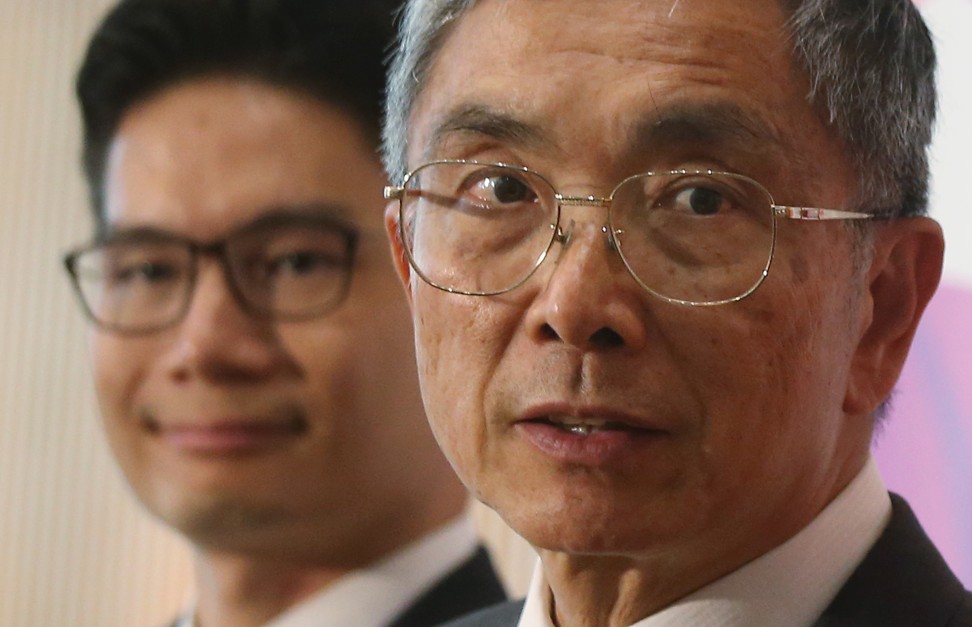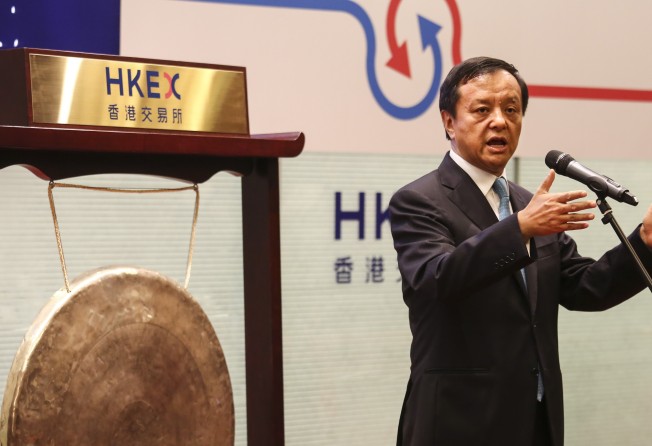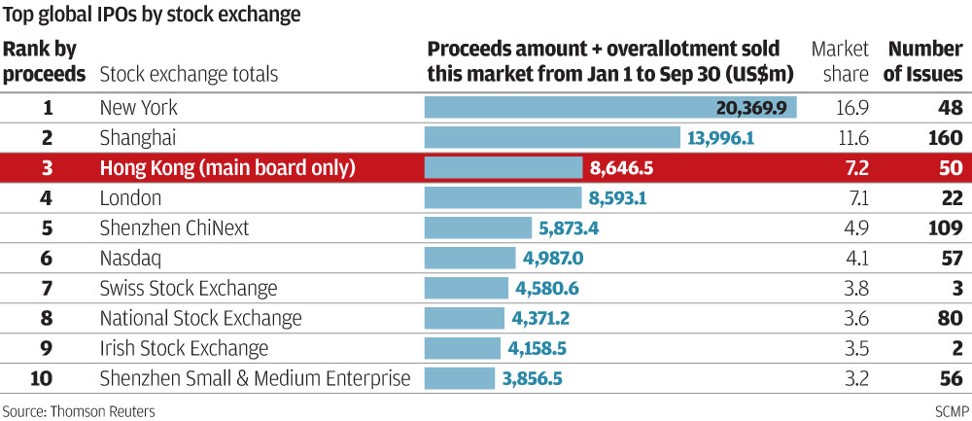“We have looked at both possibilities” of whether to introduce so-called weighted voting rights, or multiple-class structure, on the proposed board or the main board, Lau said. “The chance is higher on the main board.”

Hong Kong’s government has signalled it will abandon plans to set up a new board on the local bourse, instead asking the city’s regulators to amend existing listing rules to attract technology companies to raise capital here

The Hong Kong stock exchange seems to be backing down on plans for a new board and hopes to reach a consensus with the government to allow start-ups and multiple-class shareholding structures raise capital on the main board.
“I believe we have consensus on the broad direction but more time is required to work out the details,” said Charles Li Xiaojia, chief executive of Hong Kong Exchanges and Clearing on Tuesday, which launched a consultation process for a third board that lasted two months between June and August. “The questions now are how to do it, where to do it [new board or main board] and what kind of investor protection should be introduced.”
Li said that conclusions from the new board concept paper will be out soon and that HKEX is currently working on the conclusions as well as proposals for a second consultation. “We have not decided yet whether the two documents will come out together or separately. We will continue to discuss that with the government and Securities and Futures Commission.”
However, Hong Kong’s government has signalled that it intends to drop a plan to establish a new board on the city’s stock exchange for start-ups and companies with multiple-class shareholding structures to raise capital, choosing instead to amend existing rules to allow these companies to list.

Hong Kong’s market ranked third among global destinations for IPOs in the first three quarters of this year, with 106 companies raising a combined HK$85 billion in the city, according to Deloitte’s data. That compares with the whole of last year, when 71 IPOs raised HK$134.3 billion (US$17.2 billion).
The city’s brokers, bankers and regulators had been divided over how best to maintain Hong Kong’s competitiveness since Alibaba Group Holding – the world’s largest online shopping platform and owner of the South China Morning Post – abandon the local bourse to stage its record US$25 billion IPO in New York in 2014.
At issue was a voting structure among the company’s founding shareholders that gave them veto power over the appointment of directors, a special right that contravenes Hong Kong’s “one share, one vote” principle. Ever since, Hong Kong had been debating whether to allow companies with dual-class shares, a common feature among technology companies from Facebook to Snapchat, to list on the exchange, or establish a new board to cater for them. The New York and Nasdaq bourses allow these dual-class stocks to list.

“Over these past few years, we have all observed a better trend in the development of this particular sector and do have a better grasp of the future direction,” Hong Kong’s Financial Secretary Paul Chan Mo-po said today during a taxation forum. “So under different sets of circumstances now, if we can have a proper safeguard design and have them put in place, allowing companies with weighted corporate structures to be listed is not impossible.”
The move has been regarded as part of the exchange’s efforts to woo more technology and emerging companies amid growing competition for initial public offerings among global markets.
The proposal’s public consultations ended last month.
Previously, media reports said HKEX plans to highlight four points in the conclusion of public consultations, which could pave the way for a potential next round of consultation.
The four points include supporting the introduction of weighted voting rights in Hong Kong, making rule changes to the main board instead of setting up a new board, scrapping the establishment of a new listing segment targeting tech start-ups, and adding new rules to attract emerging companies such as biotech firms.
In 2015, the HKEX proposed to allow dual-class shareholding companies to list in Hong Kong, but the SFC rejected the proposal. Nonetheless, the commission said it supported public discussions of the new plan.